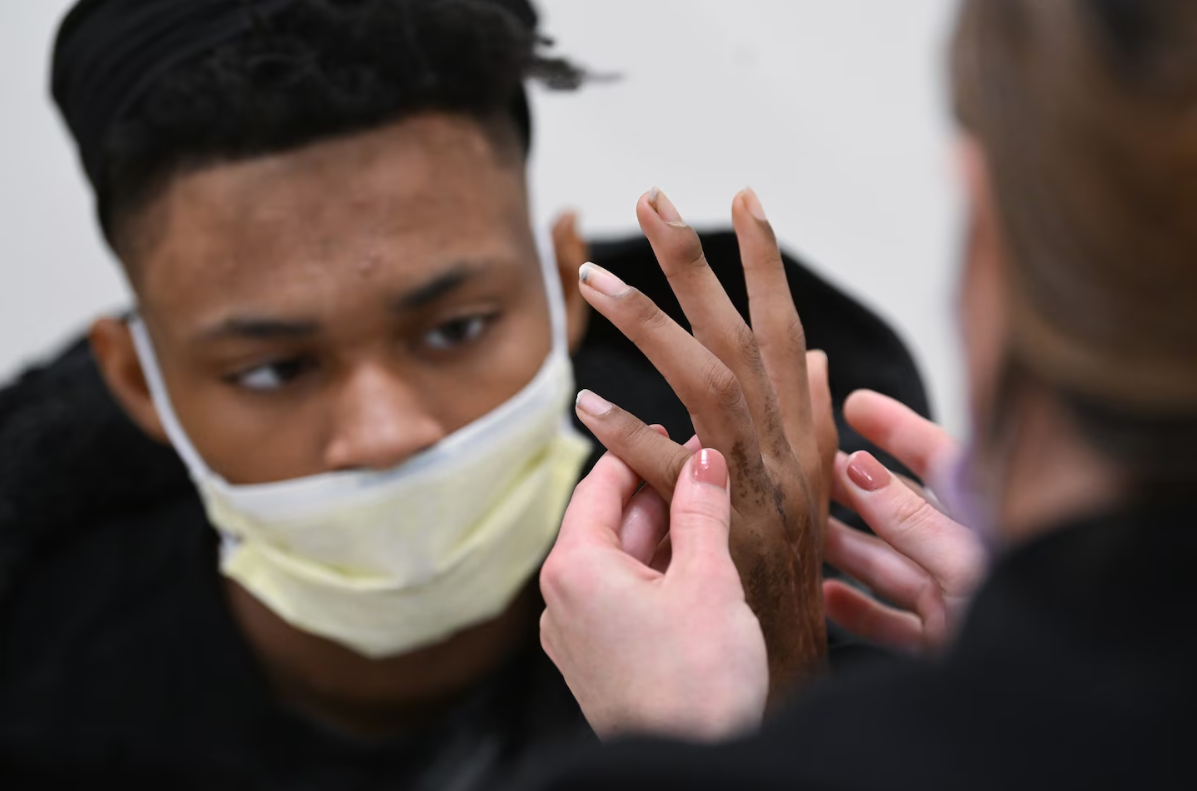Youth Violence Intervention Program
When a child is injured by an act of violence – whether by gunshot, stabbing or other significant assault – Children’s National Hospital offers ongoing physical, mental and emotional support beyond the Emergency Department. Our Youth Violence Intervention Program provides children and their families with this support by offering resources and community connections to build a safer future.
Building Connections: How We Help Survivors of Youth Violence
The Youth Violence Intervention Program at Children’s National views violence as a chronic illness rather than a single injury to be treated. We continue to provide follow-up care for several months after a child has survived violence.
Our youth violence intervention specialist and social worker meet children in the hospital during their stay and offer help for those children or families who want to make a change in their lives.
When we build a connection with a recovering child, we:
- Strategize a safety plan for preventing future violence
- Provide guidance for medical follow-ups, including transportation to appointments
- Recommend mental health and substance use providers
- Connect with community supports for survivors of violence, such as art therapy, victims’ groups and talk sessions
- Share referrals to organizations that assist with food and housing insecurity
- Support children’s educational needs, such as helping them finding safe routes between home and school
- Provide advice on career development, connecting them to job opportunities or training

The Washington Post (account required)
Saving Antonio: Can a renowned hospital keep a boy from being shot again?
After a 13-year-old was nearly killed outside his mom’s apartment, Children’s National Hospital went beyond treating his bullet wounds.



Meeting a Critical Need in the Community
Recent research has found that firearms are now the leading cause of death in children ages 1-19 in the United States. The D.C. Office of Victim Services and Justice Grants funds our Youth Violence Intervention Program, meeting a critical need for ongoing care and support for survivors of violence in our community. Our team includes:
- Medical Director Katie Donnelly, MD, MPH, is an assistant professor of pediatrics and emergency medicine at Children’s National and The George Washington University. She is a pediatric injury prevention advocate, especially firearm and community violence injuries. She is a member of our firearm safety advocacy group (SAFER) and a Child Health Advocacy Institute affiliate faculty member.
- Violence Intervention Specialist Jawanna Hardy is a longtime educator and community activist. She served in the U.S. Air Force for six years. Upon coming home, she realized the neighborhoods of D.C. were experiencing trauma from gun violence without therapy or support. She founded Guns Down Friday to support families suffering loss and mobilize communities to take action. She joined Children’s National in 2022 to create connections with children and families who are survivors of violence.
- Social Worker Yvonne Doerre brings 26 years of experience as a social worker, trainer, and consultant in communities. Her role in the Youth Violence Intervention Program is to help families and children connect to supports both within Children’s National and the community.
A team of providers including Dr. Donnelly established the group SAFER (Safer through Advocacy, Firearm Education and Research) at Children’s National after seeing the damage inflicted by gun violence first-hand. Group members contributed to a study that found sociodemographic factors related to intent of injury by firearm may be useful in guiding policy and interventions for preventing firearm injuries in at-risk youth. Dr. Donnelly also collaborated on a study that found a surge in firearm injuries in young children and inflicted by young children during the first 6 months of the COVID-19 pandemic.





